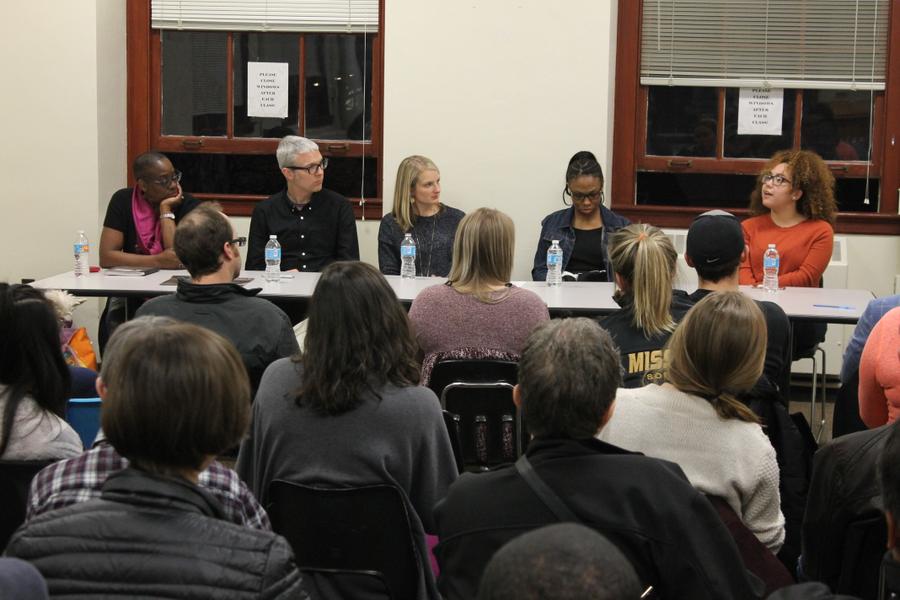
A panel of one MU education student and four Columbia educators led a discussion on the importance of teaching Black Lives Matter in schools in Hill Hall on Wednesday night.
The panel, hosted by the National Alliance of Black School Educators, examined topics ranging from the importance of the Black Lives Matter movement to how educators should implement the movement in their classrooms. They all prioritized the need to stop focusing on black lives only during February and instead continuing that education throughout the whole year.
“I want teachers to care about their students, and I want teachers to care about each other,” said Rebekah Hurley, a sophomore studying early childhood education and the only MU student on the panel.
Cynthia Martin, one of the panelists, is a fourth grade teacher who has been an avid supporter of equity training within the Columbia Public School District. [According to the Columbia Tribune](http://www.columbiatribune.com/news/education/columbia-public-schools-promotes-diversity-training/article_289ea426-6f7e-11e3-aebf-10604b9f6eda.html), equity training is a program practiced in the district that helps teachers cater to students from different socioeconomic groups as well as teach them the importance of inclusivity in and out of the classroom.
“Being a teacher working in a district for 10 years, I would love to say that I’ve been respected by everyone in the district, but I have not been because of the color of my skin,” Martin said.
Martin, who teaches at Eliot Battle Elementary School, sees the importance in teaching her students about other cultures and backgrounds. She decided that “every day for Black History Month, I’m going to try and have students learn about students from the past.”
She believes that it is “important for [her students] to know these things,” but she also believes that it’s important that teachers both in and outside of her district implement similar plans.
Haley Bordelon, an elementary education major at MU, attended the event and learned how she can impact her future students.
“I know that I can take what I have learned and help [my students] become citizens one day, help them become future presidents, or educators, or lawyers, or doctors,” Bordelon said. “I know that I have to know about different cultures, about different races, about different sexes, and about different genders to be able to talk to little minds and help them understand how the world works.”
_Edited by Madi McVan | [email protected]_